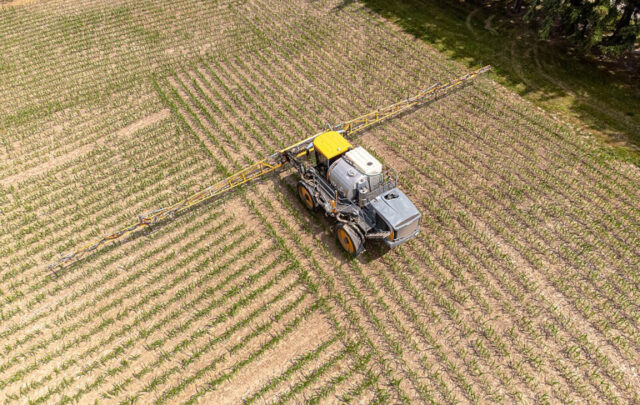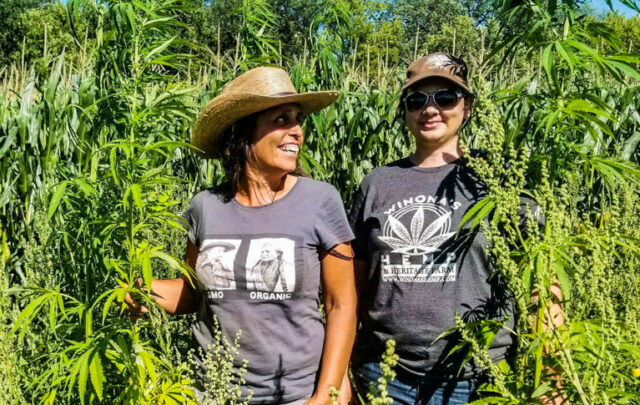by Debbie Clarke
Back in the early 90s, Unicorn Grocery’s founders felt frustrated at their lack of shopping options, and aimed to create the kind of place where they wanted to shop themselves—where their needs were met and their ethics not sold out. And so Unicorn was born. In the 14 years that have followed, it has remained a place we love to shop in, and a realistic, affordable alternative to the supermarket.
While the shop provides a similar range of products to a supermarket and prices competitively with them, the way we do business is very different. The public face of the supermarkets, which promise ever-cheaper food in an easy and convenient format, hide the true costs of food and trade. High food miles, price-squeezing suppliers, highly industrialised farming—the factors that supermarkets rely on for their offer are neither sustainable nor fair.
 Unicorn is guided by a set of founding principles, or ethics, that attempt to make the way we trade less exploitative and more sustainable. Our basic remit is affordable, wholesome food with a focus on organic, fair-trade, local and ethical sourcing. We describe these as our focus because it’s what we strive for—but we don’t claim to be perfect. We are a mainstream retailer—we aim to appeal to the mass market as an alternative to the supermarket, and this means we are constantly balancing ethics with affordability. Our products reflect this dual purpose, so range from things that may not differ much from those in your cornershop, to more radical lines like Zapatista coffee from autonomous Mexican communities, or Adavasi tea traded using a ‘Fairtrade Plus’ model. All of our fruit and veg, plus alcohol and bread, is organic.
Unicorn is guided by a set of founding principles, or ethics, that attempt to make the way we trade less exploitative and more sustainable. Our basic remit is affordable, wholesome food with a focus on organic, fair-trade, local and ethical sourcing. We describe these as our focus because it’s what we strive for—but we don’t claim to be perfect. We are a mainstream retailer—we aim to appeal to the mass market as an alternative to the supermarket, and this means we are constantly balancing ethics with affordability. Our products reflect this dual purpose, so range from things that may not differ much from those in your cornershop, to more radical lines like Zapatista coffee from autonomous Mexican communities, or Adavasi tea traded using a ‘Fairtrade Plus’ model. All of our fruit and veg, plus alcohol and bread, is organic.
 Buying direct from suppliers also means we are able to develop honest and long-term relationships with our suppliers, and our trading terms are much fairer than the supermarkets’. Chris Hewitt is a veg supplier less than 15 miles away from the shop, and for ten years was part of a growers’ co-op supplying three of the biggest supermarkets. He explains the difficulties dealing with the multiples’ demands for crops at the start of the year, when they would produce reports indicating expected sales of fresh produce which they in turn expected the growers to provide. The growers would sow crops accordingly but in the 10 or so years that Chris was involved the supermarkets never once hit these sales, leaving the growers to pick up the difference. Over the decade, prices were driven consistently down despite the growers’ costs increasing. Purchasing practices made it very clear that if the growers didn’t supply for the prices demanded the supermarkets would simply go somewhere else. ‘They were aggressive and bullish,’ Chris says. ‘It’s a hard enough job as it is without knowing you’re not getting a fair return for it. The great thing about trading with companies like Unicorn is that we’re now receiving a fairer price for our crops that reflects their market value, rather than the rock-bottom price that the supermarkets were paying’. Our relationships with suppliers is really important to us, and we value the fact we are tading directly with them, instead of through middlemen.
Buying direct from suppliers also means we are able to develop honest and long-term relationships with our suppliers, and our trading terms are much fairer than the supermarkets’. Chris Hewitt is a veg supplier less than 15 miles away from the shop, and for ten years was part of a growers’ co-op supplying three of the biggest supermarkets. He explains the difficulties dealing with the multiples’ demands for crops at the start of the year, when they would produce reports indicating expected sales of fresh produce which they in turn expected the growers to provide. The growers would sow crops accordingly but in the 10 or so years that Chris was involved the supermarkets never once hit these sales, leaving the growers to pick up the difference. Over the decade, prices were driven consistently down despite the growers’ costs increasing. Purchasing practices made it very clear that if the growers didn’t supply for the prices demanded the supermarkets would simply go somewhere else. ‘They were aggressive and bullish,’ Chris says. ‘It’s a hard enough job as it is without knowing you’re not getting a fair return for it. The great thing about trading with companies like Unicorn is that we’re now receiving a fairer price for our crops that reflects their market value, rather than the rock-bottom price that the supermarkets were paying’. Our relationships with suppliers is really important to us, and we value the fact we are tading directly with them, instead of through middlemen.
Making good food accessible to a mass market involves a balance that’s hard to get right, and we probably don’t get it right all the time. But what always remains is the fact that as a co-operative, we’re guided by principles we all signed up to, and that we all believe in. And unlike the supermarkets we are not driven by the need to maximise profits. While we earn a living wage it certainly doesn’t make us rich—we’re all there because Unicorn is something we think makes a difference, and we wouldn’t bother if it didn’t!
 Staying competitive on price has become increasingly challenging (though still possible) as the supermarkets’ well-publicised ‘price wars’, with their subsequent effects on producers’ livelihoods, have driven the cost of food down to their lowest ever levels. But we believe we’ll only get more relevant in the future, as the small independent sector, and particularly Unicorn, are well placed to adapt and change in a post-oil world. Whilst the large multiples continue to adhere to a central distribution hub model, we stay affordable by buying direct from suppliers wherever possible (all our UK fruit and veg comes directly from the farm). We are increasing local supply year on year to reduce the distance between field and fork, including from our own land just 14 miles away, purchased in 2008. We continue to support growers financially when they need it, the nearest of which is just two miles away (Glebelands City Growers, a co-operatively run market garden). Five or six others supply us from within 20-30 miles.
Staying competitive on price has become increasingly challenging (though still possible) as the supermarkets’ well-publicised ‘price wars’, with their subsequent effects on producers’ livelihoods, have driven the cost of food down to their lowest ever levels. But we believe we’ll only get more relevant in the future, as the small independent sector, and particularly Unicorn, are well placed to adapt and change in a post-oil world. Whilst the large multiples continue to adhere to a central distribution hub model, we stay affordable by buying direct from suppliers wherever possible (all our UK fruit and veg comes directly from the farm). We are increasing local supply year on year to reduce the distance between field and fork, including from our own land just 14 miles away, purchased in 2008. We continue to support growers financially when they need it, the nearest of which is just two miles away (Glebelands City Growers, a co-operatively run market garden). Five or six others supply us from within 20-30 miles.
People need more options for their weekly shop, and we think there’s room for a Unicorn-type store in every city, and perhaps more besides. For that reason we’ve created a guide to setting up and running a shop on similar lines to Unicorn. The Grow a Grocery guide, developed in collaboration with Making Local Food Work, is intended to help ease the emergence of new stores run on similar lines all over the UK. Leah de Quattro, who helped put together the guide, says, ‘Unicorn is by no means the only successful model out there, and like any solution we’re still far from perfect, but our experience is something that can be utilised, built upon, and of course improved by others. In a better food system, there would be more places a bit like Unicorn’. …And certainly a few less supermarkets.
Situated in Chorlton, Unicorn Grocery is one of the UK’s largest independent wholefood shops, named Radio 4’s ‘Best Local Food Retailer’ in 2008. Established in 1996, Unicorn is a worker’s co-operative, which means the shop is owned and run by the people who work in it, of whom there are currently around 40. http://www.unicorn-grocery.co.uk
Debbie Clarke has worked at Unicorn for nearly 8 years, after originally having planned to stay 6 months. She has lived in Manchester most of her life and is involved in several community food projects locally. ‘I still love working at Unicorn after all these years, and although it’s been nearly 8 years I still regularly get a buzz when I’m reminded what a great job we do and how proud I am to be part of it’.





